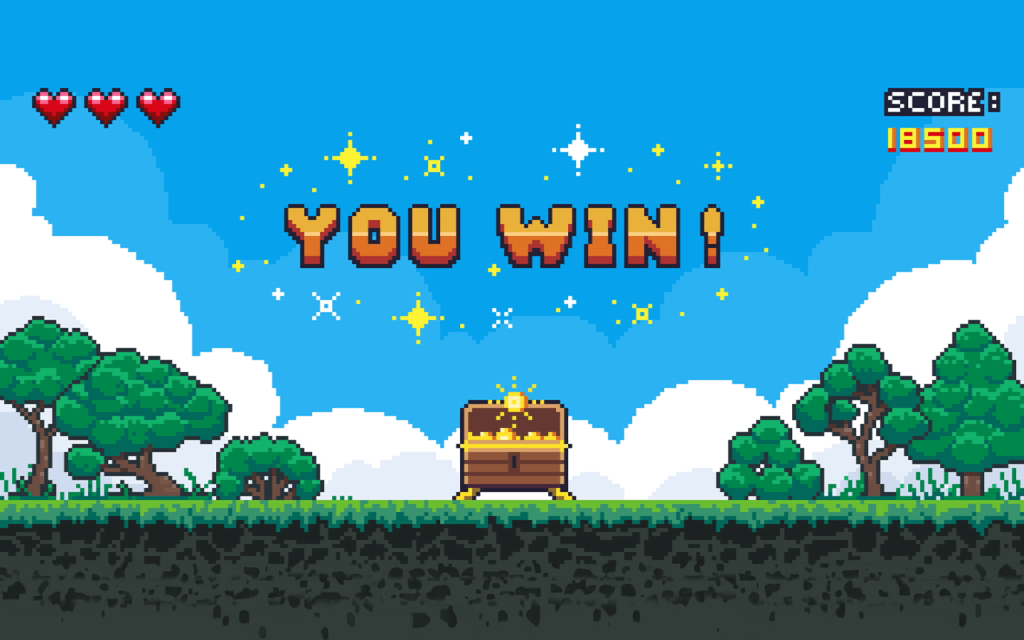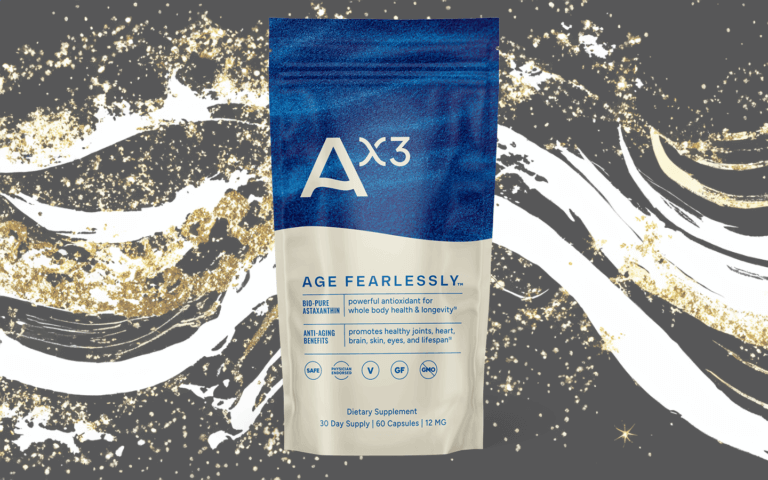Video games can transport us to a fantasy world, put us in the shoes of heroes and mythical beings, and allow us to submerge into a realm of joy and passion.
But when it comes to commercial video games’ long-term relationship with health and fitness, the story follows a different narrative.
Countless research and studies since video games burst onto the world platform in the early 1970s with the release of Atari’s “Pong” have provided adverse side effects to overindulging.
Obesity, heart problems, poor sleep, depression, social anxiety and lack of motivation are just a few of the standard tropes, with the World Health Organization finding that 3-4% of gamers suffer from gaming addiction, equating to over 10 million people worldwide.
But it’s not all bad for gamers out there.
Modern-day studies – combined with a more complex and emotionally deeper range of games now available – point to a gaming future closely tied to both mental illness and health advocacy and improvement.
A 2015 study found improvements in gamers’ cognitive abilities, while research was also collected that demonstrated that regularly playing video games may enhance an individual’s emotional intelligence, promote emotional regulation and be utilized as a practical coping skill to manage stress and overcome negative feelings.
Playing a video game as a family can also provide similar mental health benefits, allowing families to cope with collective stressors, as per promising results of a 2022 study.
Games not only help alleviate signs of depression but also have the potential to enhance social interactions and diminish feelings of isolation in certain instances, according to a 2021 report – so the good news keeps coming.
Gaming also offers a framework that imparts structure, agency, and control – elements often challenging for individuals grappling with mental health concerns in their daily existence.
With the old-fashioned stigma of video games solely being detrimental to mental health in the rearview mirror, Muscle and Health looks at the best games to boost your happiness (in moderation).
1. Tetris Effect (2018)
Everyone has played, or at least heard, of Tetris at some stage. Whether you’re a virgin or a hardcore gamer, the story of the block-building phenomenon created in Russia during the early 1980s isn’t just a video game one. It’s a cultural staple.
Many versions of Alexey Pajitnov’s brainchild have followed, but 2018’s Tetris Effect is noteworthy courtesy of its mesmerizing sounds, therapeutic levels and overall entrancing tone.
Tetris Effect isn’t just notable for its modern-day twist on a classic gaming fixture. Research conducted in 2017 revealed that engaging in Tetris gameplay after trauma can effectively deter the development of distressing memories linked to traumatic experiences.
The cognitive load it places on our visual processing impedes the creation of vivid recollections of emotions, potentially serving as a preventive measure. Therefore, if you’ve encountered a particularly challenging day, turning to Tetris might offer psychological benefits as a means to facilitate emotional recovery.
2. Journey (2012)
Playing Journey for the first time is an experience you will not likely forget quickly. An indie adventure game developed by Thatgamecompany, its premise is beautifully simple in a market stacked with convoluted plots. Reach the horizon in the distance. Of course, there is more to that in this blissful work of art, which expertly crafts stunning visuals and a charming soundtrack.
There’s a reason many gamers still embark on journeys to this day. The title has been notably therapeutic among the sufferers of mental health conditions. One gamer said the Journey and “its community of characters had collectively become my support group and helped me through the struggles of depression,” attributing the game’s multiplayer aspect to helping them grow and deal with depression.
It’s also been a tool for the anxious generation. “Journey is my go-to game when life becomes overwhelming and unbearable. It makes me smile and puts me in a healthier headspace,” says another gamer. Delivering a profoundly impactful and poignant ending, Journey is the perfect place to visit when life gets too much.
3. Stardew Valley (2016)
How can a farming simulator help with mental health? It’s a fair question, but it’s one which the 2016 title Stardew Valley answers perfectly. You play as an unnamed character who inherits control of their deceased grandfather’s dilapidated farm, with the sole task being to live a simple life and maintain your relative’s legacy.
Grow crops, raise animals, and build relationships with the community. There’s nothing alarmingly complex here, but these mundane tasks all provide a sense of purpose and accomplishment, which can be helpful for those suffering from depression. The tone throughout the experience is one of calm and peace, the visuals are bright and cheerful, and there’s an overriding sense of serenity at play.
One game fan says, “The day-to-day routine of Stardew Valley is what makes it such an affirming, meditative experience. After playing a productive day or two of Stardew Valley, I often feel more ready to get things done.”
4. Night in the Woods
“After graduating from university, I spent my days going from one panic attack to the next, lost in a dead-end sea of job application rejections. My self-loathing was making me desperately unhappy, and I couldn’t quiet the voice telling me I was a waste of space,” says Heather Wald, a then 24-year-old gamer searching for comfort when she came across the 2017 single-player adventure video game.
A game that entwines mental health and mental illnesses at its fundamental core, the story is led by protagonist Mae Borowski’s mental well-being, with every character the game introduces you to throughout its 10-hour run-time also dealing with their own relatable issues. Its attempts to normalize what is often stigmatized make Night in the Woods a revolutionary title for gaming.
While the side-scrolling gameplay and mundane pace may be an issue for some, the title celebrates the small victories in life – the concept of getting through the day deserving of a gold medal – and has helped countless people dig deeper into the true meaning behind the story and face up to their own inner demons and issues in reality.
5. Sea of Solitude
In this video game, the protagonist named Kay, a young woman, navigates through a partially submerged city, contending with a variety of red-eyed, scaly creatures. Yet, her internal struggles prove to be the most daunting. As the narrative unfolds, Kay realizes that the animals she encounters were once humans who transformed into monsters due to overwhelming fear and loneliness. Her path to salvation becomes intertwined with her quest to conquer her sense of isolation.
The character of Kay was crafted in the likeness of the game’s creative director, Cornelia Geppert, from the independent game studio Jo-Mei Games. Geppert’s personal ordeal with grief, stemming from a breakup in 2013, heavily influenced the game. She candidly describes feeling trapped in a metaphorical cage during that time.
The game’s release and subsequent Director’s Cut fell within the Covid-19 pandemic era, making the title’s tone familiar to gamers who spent extended periods locked inside. Sea of Solitude was a vital tool for social connection for many during those tough times. Geppert told Wired that hundreds of fans – parents, adults and kids – contacted the developers to express how the game helped them to not feel so alone, providing support for anxiety disorders, mental illness and mental health issues.
6. A Short Hike (2019)
Welcome to Hawk Peak Provincial Park, the backdrop for 2019’s A Short Hike and the setting for an indie game that claimed the Seamus McNally Grand Prize at the Independent Games Festival Awards a year after its release. With a distinct art style and retro feel, the game tasks players with scaling the highest mountain on the holiday island.
Writing for AIPT, Trevor Richardson said the game helped him reflect on his neurodivergence: “Though I too spent my time with the game anxious about what emotional payoff awaited me at the end of the trail, I was reminded of the same anxious patterns which recur in real life. A Short Hike allowed those anxious patterns, as well as those which manifest through my ADHD, to play out in a safe and rewarding experience.”
Featuring a charming lead character in a young bird called Claire, the countless visitors you encounter while traveling provide philosophical advice. It’s relaxing, you can go at your own pace, and it’s fun.
7. Minecraft (2011)
The most well-known and popular game on our list, Minecraft, boasts over 3.5 million active players online and, as of March 2023, has sold over 238 million copies worldwide. Blocks. Lots of blocks. The sandbox game allows players to explore, create and interact within their own 3D worlds, but the premise reaches far beyond that.
Minecraft is proven to support psychological well-being in children, its ability to help non-verbal or traumatized children express what is going on in their head and aid autistic children who have trouble reading facial expressions or dealing with background noise, according to a 2021 project.
In Australia, senior mental health clinician Timothy O’Donnell used Minecraft to assist in treating children with complex social and behavioral issues, stating that the game was a valuable tool for interaction and provided a good insight into the children’s state of mind. Minecraft is a popular game for people struggling with depression, anxiety and ADHD, with its meditation-like state and bliss soundtrack complementing the virtually infinite building possibilities.
No wonder it’s used in classrooms worldwide to teach various topics and subjects, including coding, science, geography, and mathematics. These various related topics are easier to learn while playing Minecraft due to the improved hippocampal memory and the aspect of having fun while learning.
8. Animal Crossing: New Horizons (2020)
Animal Crossing: New Horizons received a stamp of approval from Oxford University for its positive impact on mental health. Contrary to previous notions, this life simulation game has been proven to contribute to players’ well-being, as reported by The Guardian.
The study, which utilized gameplay data centered around Animal Crossing, found that individuals who engage in extended gaming sessions experience a notable increase in their sense of well-being and combat mental health issues. For decades, relaxing games like Animal Crossing have been a sanctuary for anxiety disorders within the gaming community.
The study’s findings are compelling: those who dedicate around four hours daily to playing Animal Crossing generally exhibit higher levels of happiness. This outcome should come as no surprise, given the nature of Animal Crossing: New Horizons.
The game invites players to construct a thriving community, establish friendships, and adorn their idyllic islands. One of its key charms lies in its unhurried pace – players are encouraged to savor the experience at their own rhythm, fostering a sense of relaxation and enabling the creation of personalized goals.






